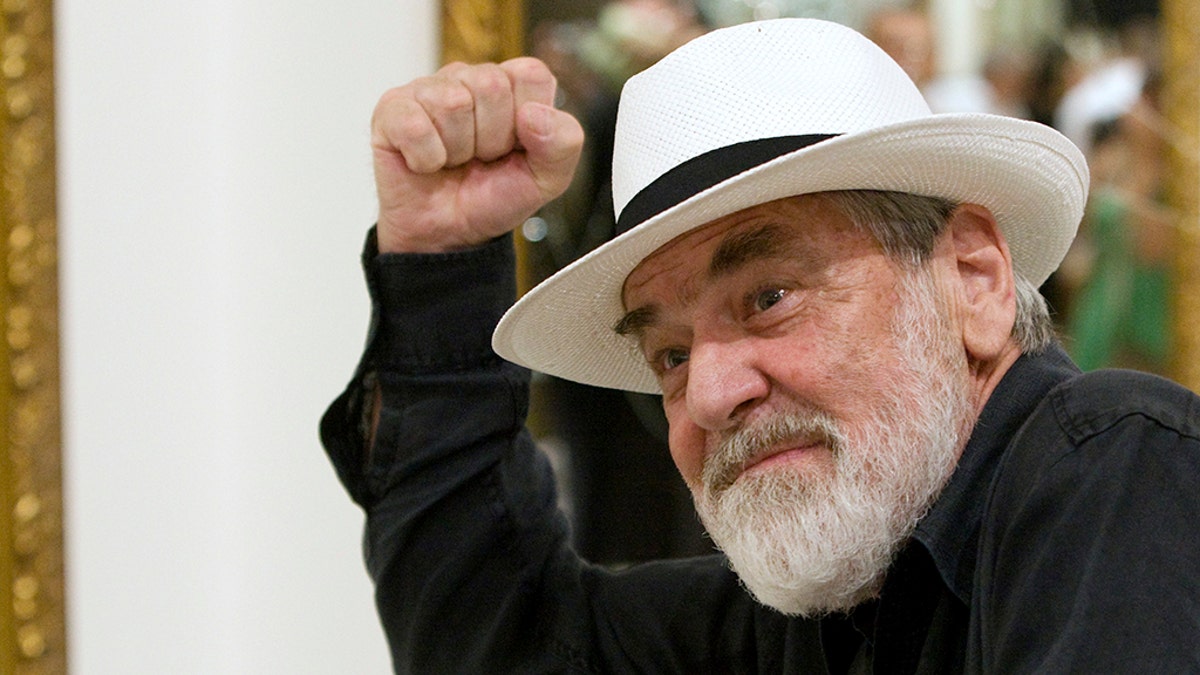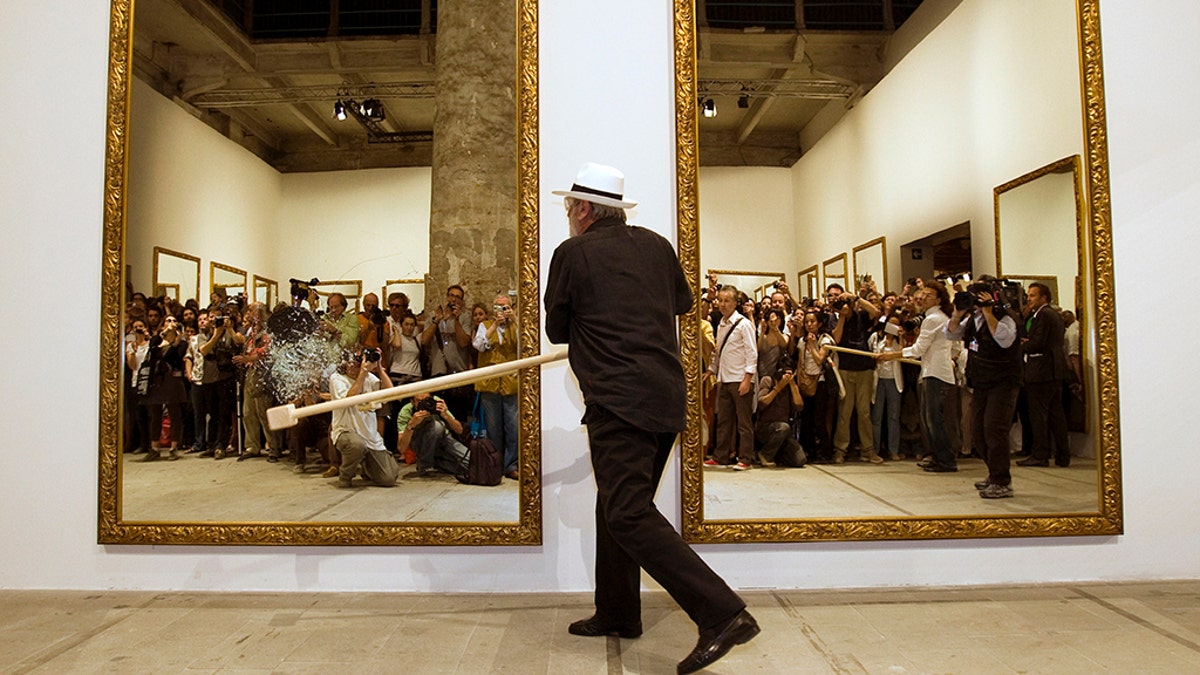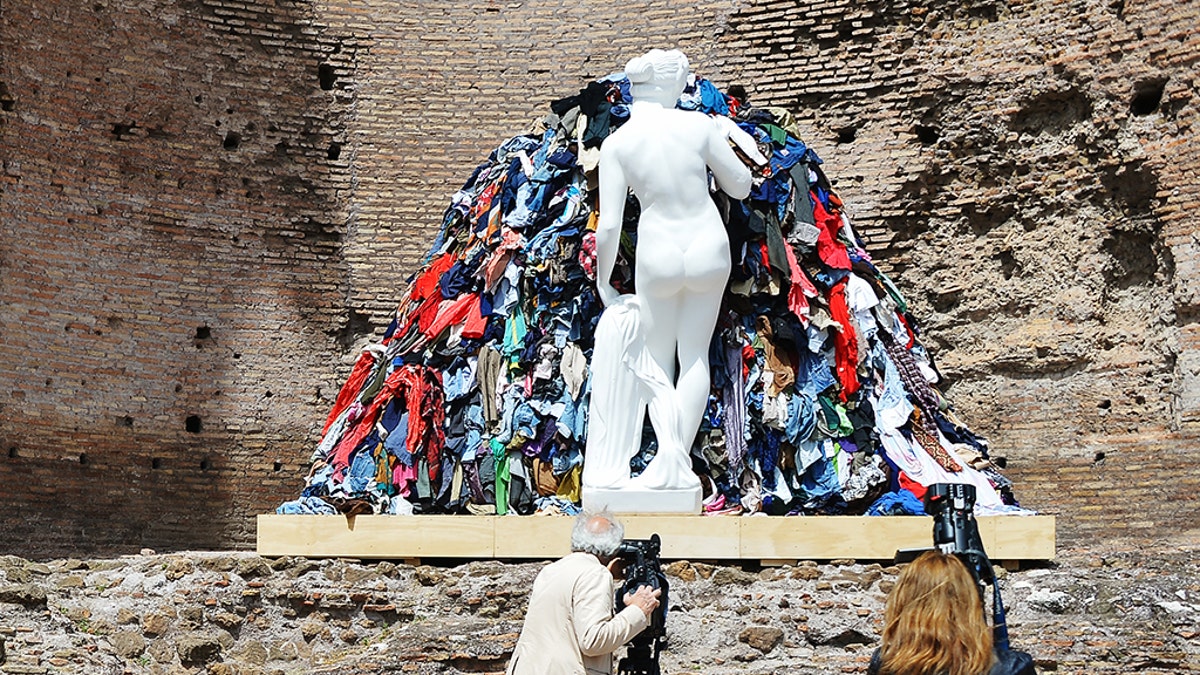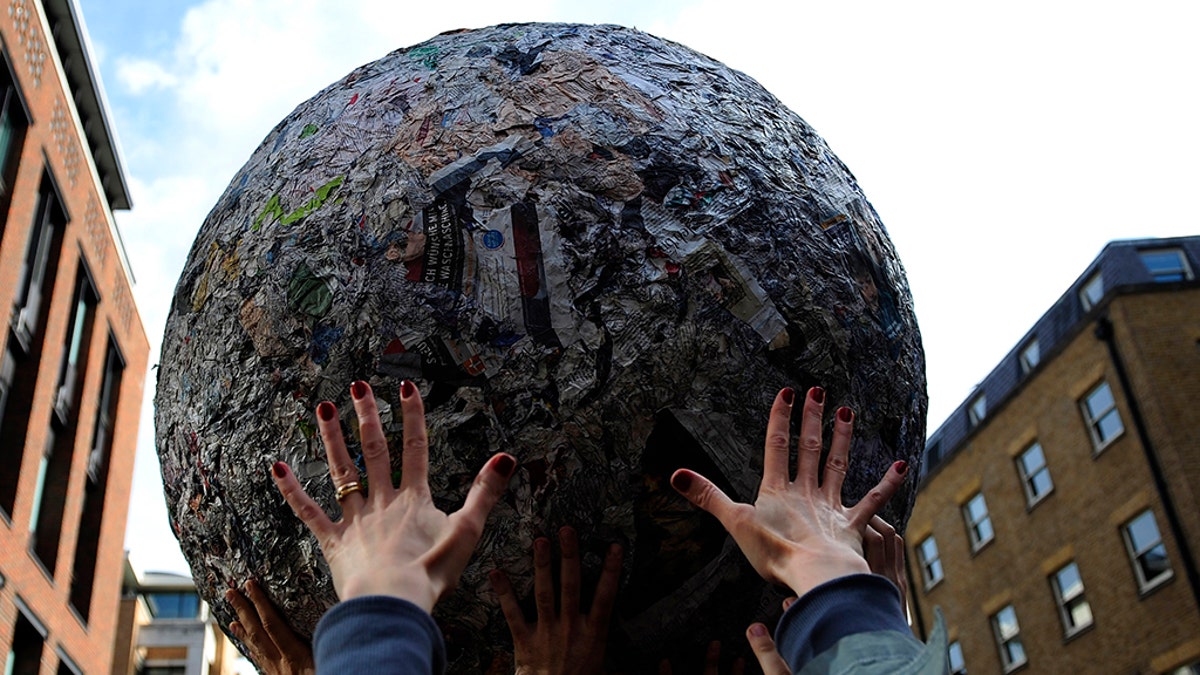Italy begins to emerge from Europe's longest lockdown with limited reopenings
Millions are returning to work as schools remain closed; Amy Kellogg reports from Florence.
Get all the latest news on coronavirus and more delivered daily to your inbox. Sign up here.
An 86-year-old revolutionary artist in Italy is reflecting on his life and the future of the world after surviving the coronavirus.
Arte Povera pioneer Michelangelo Pistoletto said: “I faced the reality of emptiness … a central void where there is no soul or ego.”

Italian artist Michelangelo Pistoletto gestures during his performance at his installation entitled "Twenty Two Less Two" during the vernissage of the 53rd Biennale International Art Exhibition in Venice June 5, 2009. (REUTERS/Alessandro Bianchi)
He is recuperating after being hospitalized in Biella, his hometown in northern Italy, for almost a month.
CORONAVIRUS: WHAT YOU NEED TO KNOW
In the art world he has had many roles: painter, performance artist, action and object artist, art theorist.

Italian artist Michelangelo Pistoletto (C) performs during his installation entitled "Twenty Two Less Two" during the vernissage of the 53rd Biennale International Art Exhibition in Venice June 5, 2009. (REUTERS/Alessandro Bianchi)
In 2003, Pistoletto created his "Third Paradise" art project as the third phase of humanity: a “passage to a new level of planetary civilization, essential to ensure the human race's survival.”
He said humanity must find the balance between technology and nature, what we make and what we are.
“In isolation, I had the opportunity to reflect a lot: I thought it was an opportunity to bring change in the wake of this terrible global experience. The change I am referring to is what we have been preparing for decades, that is, the one relating to the meeting of differences represented by the Third Paradise,” he said.
Italy started stirring Monday, with millions of people allowed to return to work as Europe’s longest coronavirus lockdown started to ease.
Italy, the first European country hit by the pandemic and a nation with one of the world’s highest death tolls, began opening up cautiously after its two-month shutdown.
In all, 4.4 million Italians were able to return to work, and restrictions on movement eased.
Europeans’ newfound freedoms are limited as officials are wary of setting off a second wave of infections.
In Italy, mourners were able to attend funerals, but services were limited to 15 people and there was still no word on when masses will resume. Restaurants scrubbed their floors in preparation for take-out service, but sit-down service was several weeks away.
CLICK HERE FOR FULL CORONAVIRUS COVERAGE

People stand in front of rags, polystyrene and acrylic cement coating sculpture " Venere degli stracci " made by Italian artist Michelangelo Pistoletto during the opening of the " Post Classici " exhibition at Rome's ancient Forum. (VINCENZO PINTO/AFP via Getty Images)
During his recovery, Pistoletto philosophically pondered the awakening that humanity needs as it faces the global pandemic.
“People need to take responsibility for how they are fed, dress, move, how we meet and what we do together. It is also important to identify new principled rules and [patterns of] behavior that can be developed without relying on governmental guidelines,” Pistoletto said.
He noted oil leads to pollution so humanity must find new sources of energy.

Members of the public hold aloft a giant ball of newspapers as it is rolled through the streets in London May 23, 2009. The sculpture by Italian artist Michelangelo Pistoletto recreated his seminal action "Walking Sculpture", which was first performed on the streets of Turin in Italy in 1966. (REUTERS/Kieran Doherty)
“The Homo sapiens [species] has reached its limit. Now the latter [humanity] is completely absorbed by technological systems—and we have come to the end of that road—and are finding a balance between existing [in the world] and technology.”
“It is not enough to think that individually a person or a few can truly change the situation, but it is possible if everyone regulates themselves according to a balanced modus vivendi [way of life],” he added.





















